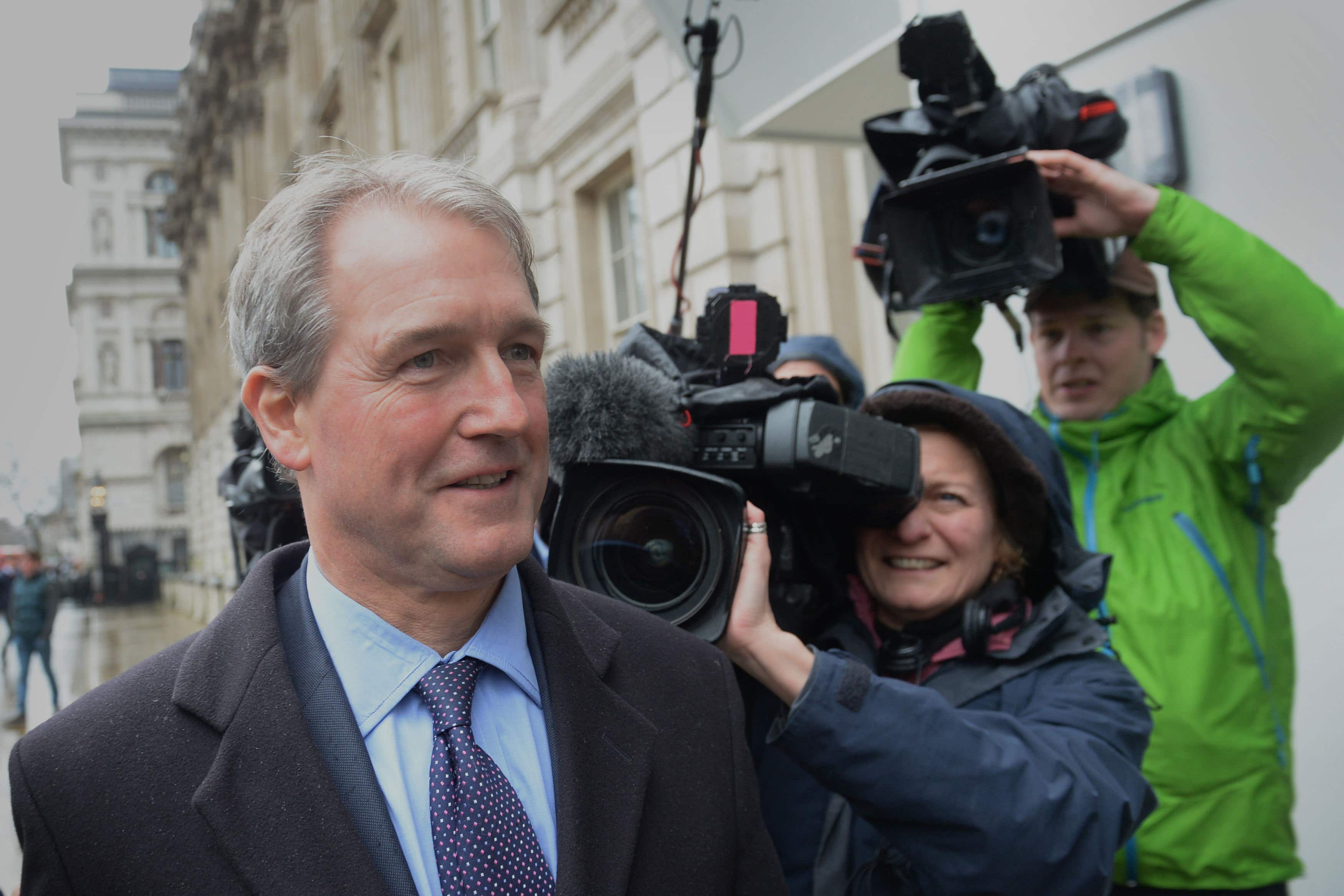European court rejects complaint from former Tory MP over lobbying probe
Owen Paterson argued his right to privacy was breached under the European Convention of Human Rights.

Your support helps us to tell the story
From reproductive rights to climate change to Big Tech, The Independent is on the ground when the story is developing. Whether it's investigating the financials of Elon Musk's pro-Trump PAC or producing our latest documentary, 'The A Word', which shines a light on the American women fighting for reproductive rights, we know how important it is to parse out the facts from the messaging.
At such a critical moment in US history, we need reporters on the ground. Your donation allows us to keep sending journalists to speak to both sides of the story.
The Independent is trusted by Americans across the entire political spectrum. And unlike many other quality news outlets, we choose not to lock Americans out of our reporting and analysis with paywalls. We believe quality journalism should be available to everyone, paid for by those who can afford it.
Your support makes all the difference.A Tory former cabinet minister’s complaint over how the UK Parliament investigated his conduct has been rejected by the European Court of Human Rights.
Owen Paterson, an ardent eurosceptic, was found to have breached lobbying rules and faced the prospect of a 30-day suspension from the House of Commons before he quit as an MP in 2021.
Mr Paterson complained to the European court that his “good reputation” had been damaged by the public finding and the process followed to investigate and consider the allegations against him had “not been ‘fair’ in many basic respects”.
As he himself resigned from the House of Commons before the House could consider whether or not to apply the recommended sanction, neither the loss of his seat nor the loss of income from his position as an MP were a necessary consequence of the investigation.
He argued his right to privacy was breached under the European Convention of Human Rights, which he previously said the UK should quit.
But the court unanimously declared his application “inadmissible” in its decision announced on Thursday.
The UK Government, who Mr Paterson brought his case against, argued it was for “Parliament, and not the courts, to regulate the business of Parliament, including the conduct of Members of Parliament in the discharge of their parliamentary duties”.
The court noted on Mr Paterson: “The applicant argued that he was publicly stated to have been found by a fair process to have engaged in corrupt practices and to have breached the Code of Conduct of Members of Parliament.
“This called into question his character and reputation, and caused him significant personal and financial loss and damage.”
Mr Paterson also highlighted the “great stress” suffered by his family, with the court noting: “His wife committed suicide during the investigation, and while he admitted that he did not know the reason why she took her own life, he believed the ongoing investigation to have been a contributing factor.”
The court said Mr Paterson has “not substantiated his more specific claims of damage to his professional relationships and his consequent financial loss”.
It said: “As he himself resigned from the House of Commons before the House could consider whether or not to apply the recommended sanction, neither the loss of his seat nor the loss of income from his position as an MP were a necessary consequence of the investigation.
“Moreover, he has provided no documentary evidence to substantiate his claims that he lost his consultancy work, and has since been unable to find either paid employment or charitable work, as a direct consequence of the committee’s findings.”
The court said the allegations against Mr Paterson were already in the public domain before the investigation into him began, adding: “It is therefore doubtful that the negative impact on the applicant’s private life caused by the investigation and its published findings alone reached the minimum level of severity required for Article 8 to be applicable.”
It added it considered Mr Paterson’s complaint under Article 8 of the convention to be “manifestly ill-founded”.
The court went on: “The integrity demonstrated by MPs in their public life is essential to maintaining both public trust in democratic systems and the political credibility of parliaments.
“Consequently, the regulation of standards in public life is intimately connected to maintaining the proper functioning of Parliament in a democracy, and the court therefore has no doubt that the investigation into the applicant’s conduct corresponded to the aim of protecting the rights of others.
“Furthermore, there was a legitimate public interest for the public to know the outcome of the parliamentary investigation into a complaint about the applicant’s conduct as an MP.”
It added: “Indeed, the legitimate interest of the public in being informed of parliamentary proceedings and their outcome would have been undermined if those proceedings had not been public in nature and the reports in question had not been disseminated.”
Mr Paterson, the former MP for North Shropshire, was found by the then-parliamentary commissioner for standards to have breached the Commons code of conduct by lobbying ministers and officials for two companies paying him more than £100,000 per year.
The Commons Standards Committee said his actions were an “egregious” breach of the rules on paid advocacy by MPs and recommended that he should be suspended for 30 sitting days.
Mr Paterson called the process “biased” and “not fair” and accused the commissioner of making up her mind before she had even spoken to him.
In November 2021, then-prime minister Boris Johnson tried to change the rules to prevent Mr Paterson’s six-week ban from Parliament, before being forced to U-turn in the face of public anger.
The sleaze row linked to the case has been seen as the first of a series of controversies which engulfed Mr Johnson’s government and ultimately led to his downfall.